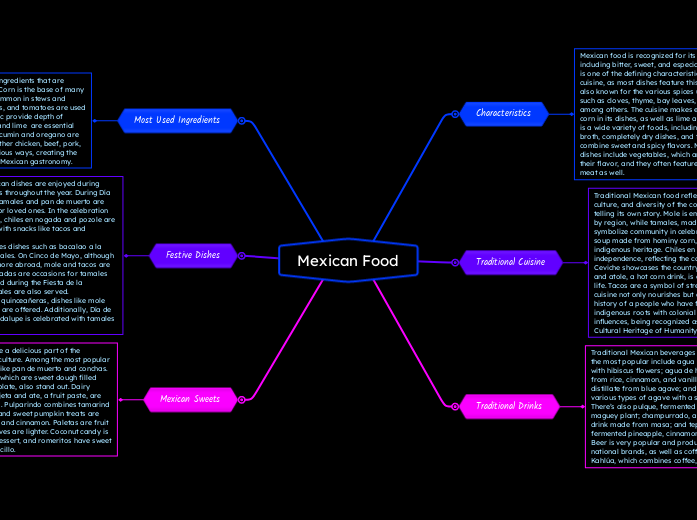por Tzuzu Kim hace 6 meses
73
Mexican Food
Mexican cuisine is a rich tapestry that reflects the nation's history, culture, and diversity, with each dish narrating a unique story. Signature dishes like mole, tamales, pozole, and chiles en nogada highlight regional variations and symbolize significant cultural elements such as community and independence.









